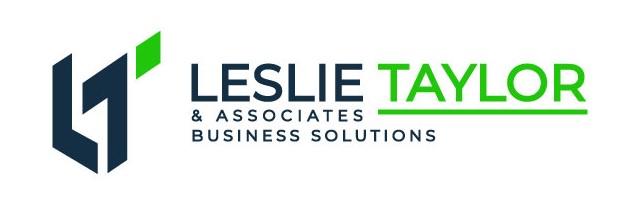Is your business serving you? If not, are you on a path to have it serve you in the future?
Every business owner has a vision or an idea of how they want their business to serve them. Some have visions of changing the world, their industry or their customers’ lives. Other business owners want to be a sought-after and dominant force in their areas of specialty. Even still, others want to prioritize helping their communities or favorite charities more substantially.
These are all honorable goals. However, none of them address how the business will serve the owner. Whether it is about having more flexibility and control over your life and livelihood, never having to stress about income, or a sense of satisfaction in creating something that has never existed in the marketplace, every entrepreneur has something they want for themselves out of this entrepreneurial experience.
Most business owners desire the freedom and flexibility of entrepreneurship but, sadly, find that they invested in a job that makes them feel handcuffed to their business. This “job,” disguised as a business, has them working nights, weekends, and 80-hour weeks. This is not the end goal for most businesses! Most business owners don’t look far into the future and think: “I still want to be wearing all the hats (sales, marketing, HR, social media, financial reporting, legal as well as delivering the product or service).”
“If your business depends on you, you don’t own a business—you have a job. And it’s the worst job in the world because you’re working for a lunatic!”
-Michael Gerber, The E-Myth Revisited: Why Most Small Businesses Don’t Work and What to Do About it
The big question is: how do you get there? What does it look like to build a business that serves you?
The answer: it depends on you and your specific goals. However, some things are universal on this path to building a business. To realize your vision, here are a few things to consider to not only keep you on track but also help manage expectations along your journey.
It’s a process
I have seen businesses try to move through this process too quickly and skip critical steps. They are ready to delegate on day one (or day two).
Delegating can be to another person or some form of technology. If you haven’t built anything or proven the business yet what is really being delegated? The process should start with building something and proving it in the market. That means people like the product or service enough to repeatedly buy it. This enables the business to consistently make money and ultimately break-even.
Breaking- even refers to being able to cover all of your business’s costs and expenses. We want this to happen consistently, meaning every month.
As you work to get the business off the ground, you will learn what works and what doesn’t. The business will not be serving you much at all during this time. You will go through a lot of trial and error as you fine-tune your approach, systems and processes.
On average, it can take 18 months for a business to break-even. However, this does vary and depends mostly on your monthly business expenses. Keep in mind that being able to step away from your business is a longer-term goal. The very first step is to build it in a way that enables you to hand it over to others later!
On the other hand, it is possible to wait too long. This can look like spiritual, mental and physical burnout. At this point, the business can start to suffer. This is the moment when you know you need to act. Check out my blog post where I discuss processes and systems and their importance in growing a profitable business.
Flexibility requires flexibility
One of the main reasons I decided to start my business was a desire for more flexibility and control. I know this is a huge reason for a lot of other business owners as well.
This year, I was able to put that flexibility into practice in a major way. I supported several members of my family when they became ill while still running my business. Even though I have designed a high degree of flexibility into my business structure, I am not yet flexible enough to be able to walk away and have my business function fully without me (remember, it’s a process!) This meant that as I took advantage of the flexibility of my business, I also had to be flexible.
In my business this looked like:
- Pausing my course launch that I had planned for August and pushing it back to the first quarter of 2022
- No major interruptions to current client work because I designed this business so my work hours are extremely flexible. This also meant working some off-hours
- Shifting my focus from my course to 1:1 clients (multiple streams provides options when unexpected things happen)
Learn the Right Things
If you aren’t learning you are “fill in the blank.
As entrepreneurs, we must keep learning the right things to be able to design a business that serves us. You need to learn the skills and implement the right tools that are going to help you lead your business towards your vision.
If your vision involves you selling more, serving more clients, and paying yourself $X a year in salary (more than you are now), what skills are you learning that will enable you to do that? I am referring to skills related to the leadership of the business, delegation, management skills, hiring well and building your team. These are critical skills for you, as the owner, to know and understand as these things sit completely on YOUR shoulders.
I challenge you to consider this as you go about running your business: If you must prioritize your time and what you need to learn, prioritize learning these skills because only YOU can do them.
Finally, this is your business. One of the benefits of owning your own business is that you can do whatever you want because you are in control! If you want to temporarily take the business on a detour and pursue a different opportunity, you have that choice. You also have the unique flexibility to change your vision as you change or as you gain new insights. While I speak about profitability a lot, (since that is the basic goal of business ownership) profitability is not important if the business is not serving its owners.
Need help aligning your vision with a profitable business? I am here for you! As a business solutions expert, I have helped dozens of businesses untangle complex issues and clarify a path to greater profitability and less confusion.
Let’s schedule a Discovery Session to start the conversation.
If you enjoyed this content and want more of the same, check out my free guide Do This, Not That: 5 Things Keeping Your Business From Reaching Its Fullest Potential where I discuss common barriers to profitability that I observe among most small businesses.

